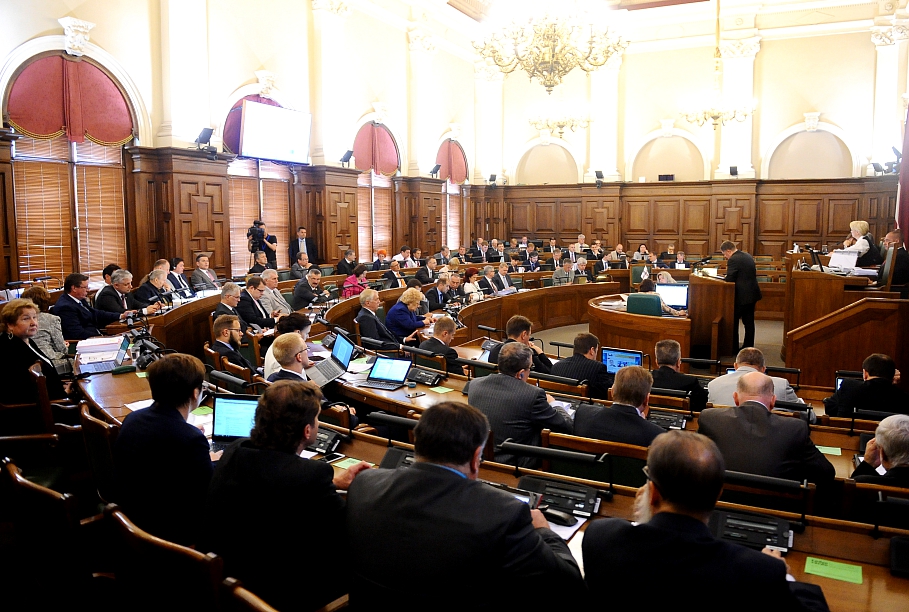The proposals are tucked away in the text of legislation drawn up by the Education Ministry on educational aspects relating to next year's state budget.
Should the proposals become law - for which they have to be promulgated by the president - teachers who promote "an incorrect attitude towards others, work, nature, culture, society and the state" will be liable to be fired.
Opposition MPs criticized Education Minister Kārlis Šadurskis (Unity) for including the proposals in the budget set of laws that requires two readings to pass the law in the parliament instead of three.
Coalition MP Ilze Viņķele (Unity) said that the loyalty amendments should not be viewed in the context of the budget. She also asked not to debase the debate with claims that opposition against these amendments amounts to support for Russian president Vladimir Putin.
Viņķele said that while the amendments have at least been edited to become a "usable instrument" due to pressure from society, they amount to being a "brother" for the "sister" that is the controversial morality amendments authored by Harmony MP Jūlija Stepaņenko last year.
While Šadurskis said that the proposals are in fact related to the budget as €244,000 has been allotted to the State Department for Education Quality.
"Disloyalty is deliberate destructive action against our state," he said. "[The amendments] are not distrust against teachers. No [other] social or professional group has a loyalty level as high [as teachers do]," said Šadurskis.
However, according to Šadurskis, schoolchildren must be protected against the bad luck of "meeting a half-deranged nationalist, a religious fanatic or a Kremlin agent of influence."
There are more than 30,000 teachers in Latvia but the amendments would affect no more than ten, said Šadurskis.
On Tuesday the Trade Union of Education and Science Employees said it will ask president Raimonds Vējonis to repeal the amendments should they pass in the second reading.





























